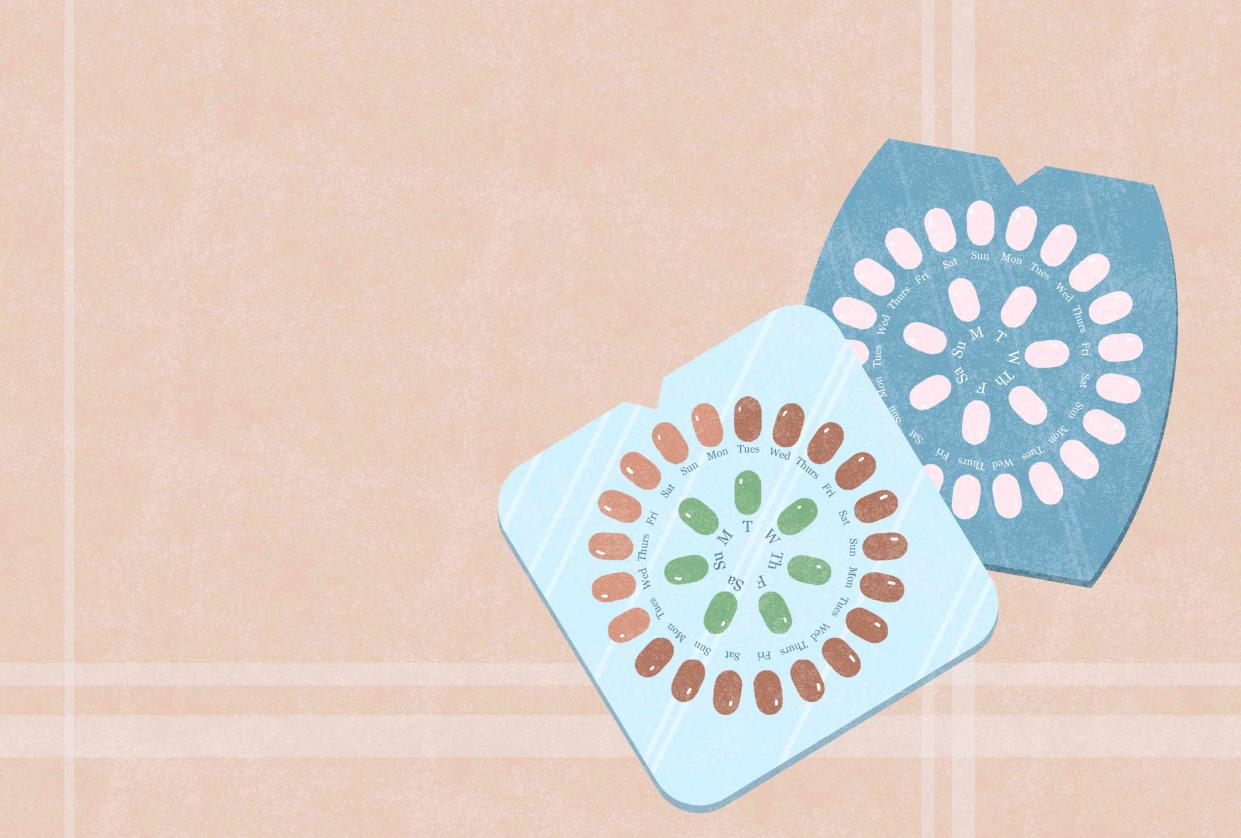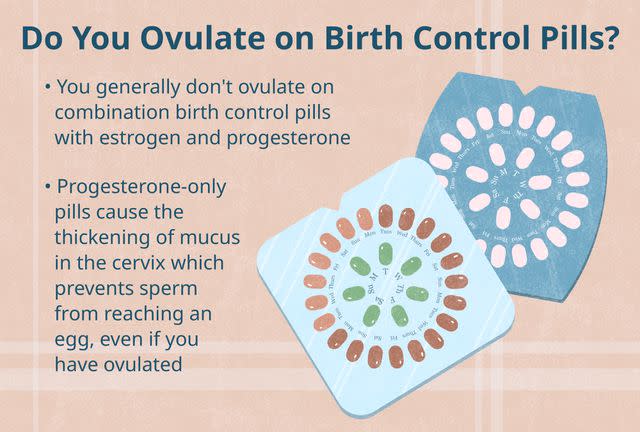Do You Ovulate on the Pill?

Illustration by Laura Porter for Verywell Health
Medically reviewed by Anita Sadaty, MD
If you're using birth control pills, especially combination birth control pills containing estrogen and progestin, you generally won't ovulate on the pill.
The hormones in the pill stop you from ovulating, which is what makes them effective birth control methods. If there is no egg released, there is nothing for sperm to fertilize and, therefore, no pregnancy.

Illustration by Laura Porter for Verywell Health
The key to stopping ovulation with birth control pills is proper use. Understanding how each type of pill works can help you get a better understanding of your fertility.
This article discusses how different types of birth control pills affect ovulation.
How Birth Control Affects Ovulation
Ovulation occurs when one of your ovaries releases an egg. When ovulation happens, the egg can be fertilized by a sperm and pregnancy can occur.
If you aren't using hormonal birth control, ovulation usually happens mid-cycle, or around 14 days before your menstrual period.
Sperm can live for three to five days in a woman's reproductive organs and an egg lives for just 12 to 24 hours after ovulation. So you are most likely to get pregnant if you have sex in the two to three days before or on the day of ovulation.
If you are using hormonal birth control, that changes things. Generally speaking, hormonal birth control sends messages to your brain saying you've already ovulated. This stops ovulation from occurring. How this works depends on the method of birth control you are using.
Recap
Hormonal birth control sends messages to your brain that you've already ovulated. That stops your body from releasing an egg, which prevents pregnancy.
Combination Birth Control Pills and Ovulation
Combination birth control pills contain both estrogen and progestin, a synthetic form of progesterone. They prevent ovulation by tricking your brain into thinking you've already ovulated.
During a natural menstrual cycle, when you're not using hormonal birth control, levels of the hormones estrogen and progesterone rise and fall. These hormones communicate with the pituitary gland, which controls ovulation.
If you use combination birth control pills, the hormone levels remain fairly steady throughout your cycle. This tells the pituitary gland that ovulation is not necessary.
Recap
Combination birth control pills keep hormone levels steady throughout your menstrual cycle. This communicates to your pituitary gland that you don't need to ovulate.
Progestin-Only Birth Control Pills and Ovulation
The hormone in the progestin-only birth control pill, or mini-pill, sometimes stops ovulation. The main way it prevents pregnancy is by thickening the mucus in the cervix. This prevents sperm from reaching an egg, even if you have ovulated.
When You Might Ovulate on the Pill
If you do not take your birth control pill every day at the same time, there may not be enough hormones in your body and ovulation may occur. The risk for ovulation increases if you miss more than one pill in a row.
As mentioned, ovulation is possible if using the mini-pill, but the egg will not become fertilized with proper pill use.
Summary
Combination birth control pills that contain estrogen and progestin keep your body from ovulating. Since there's no egg for the sperm to fertilize, it prevents pregnancy.
The combination birth control pill keeps hormone levels steady in your body to send a message to your brain that you've already ovulated.
Progestin-only birth control pills may stop ovulation. However, the main way it prevents pregnancy is by thickening mucus in the cervix to keep sperm from reaching the egg.
Frequently Asked Questions
How long does it take to start ovulating after stopping the pill?
Fertility returns quickly once you're no longer taking hormone birth control pills. On average, women begin menstruation within 32 days of stopping the pill, so ovulation may begin as early as two weeks after stopping your contraception.
Does the morning after pill stop ovulation?
Yes. Researchers originally thought a fertilized egg wouldn't be implanted if you took levonorgestrel, the medication used in Plan B and other forms of emergency contraception. However, recent studies suggest that this type of contraception works by preventing an egg from being released and fertilized. It’s estimated that it can prevent ovulation 15% of the time if it’s taken before the egg is released.
Why am I not ovulating?
Hormone birth control can stop you from ovulating, but there are also several possible medical causes. These include:
Being underweight
Being obese
Endocrine disorders
Primary ovarian insufficiency
Polycystic ovary syndrome
Aging

